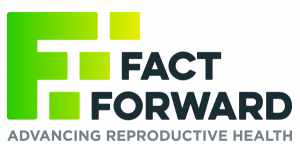Training
Accessible Sex Ed Training for Facilitators
This workshop is designed for sex ed and family life educators who want to make their programs more accessible to people with a variety of disabilities, particularly autistic people and people with intellectual and developmental disabilities (IDD).
Adding these skills to your toolbox makes affirming, inclusive education more accessible for all participants..
“Accessible Sex Ed” also covers how to talk with caregivers about the importance of complete, fact-based education for all people, especially neurodiverse folx.
In person Online
Age Group(s) - Grades K-2, Grades 3-5, Grades 6-8, Grades 9-10, Grades 11-12
Topic(s) - Conscious and unconscious bias about race, ethnicity, and culture disclosure, Consent and interpersonal and sexual violence, Contraception, pregnancy, and reproduction, Creating an inclusive and affirming learning environment, Effective teaching strategies, Healthy relationships, LGBQ+ identities, Racial and reproductive justice, Responding to challenging questions, Sex education in schools, Values
State(s) - Alabama, Alaska, American Samoa, Arizona, Arkansas, California, Colorado, Connecticut, Delaware, District of Columbia, Florida, Georgia, Guam, Hawaii, Idaho, Illinois, Indiana, Iowa, Kansas, Kentucky, Louisiana, Maine, Maryland, Massachusetts, Michigan, Minnesota, Mississippi, Missouri, Montana, Nebraska, Nevada, New Hampshire, New Jersey, New Mexico, New York, North Carolina, North Dakota, Northern Mariana Islands, Ohio, Oklahoma, Oregon, Pennsylvania, Puerto Rico, Rhode Island, South Carolina, South Dakota, Tennessee, Texas, U.S. Virgin Islands, Utah, Vermont, Virginia, Washington, West Virginia, Wisconsin, Wyoming
Professional Learning Standards for Sex Education (PLSSE) Indicators
Responding to Challenging Questions Indicators - Indicator 1 (K-12): Explain three reasons why it is important to respond to every question students ask when teaching sex education.
- Indicator 2 (K-12): Demonstrate the ability to effectively respond to three different types of challenging questions. (S)




